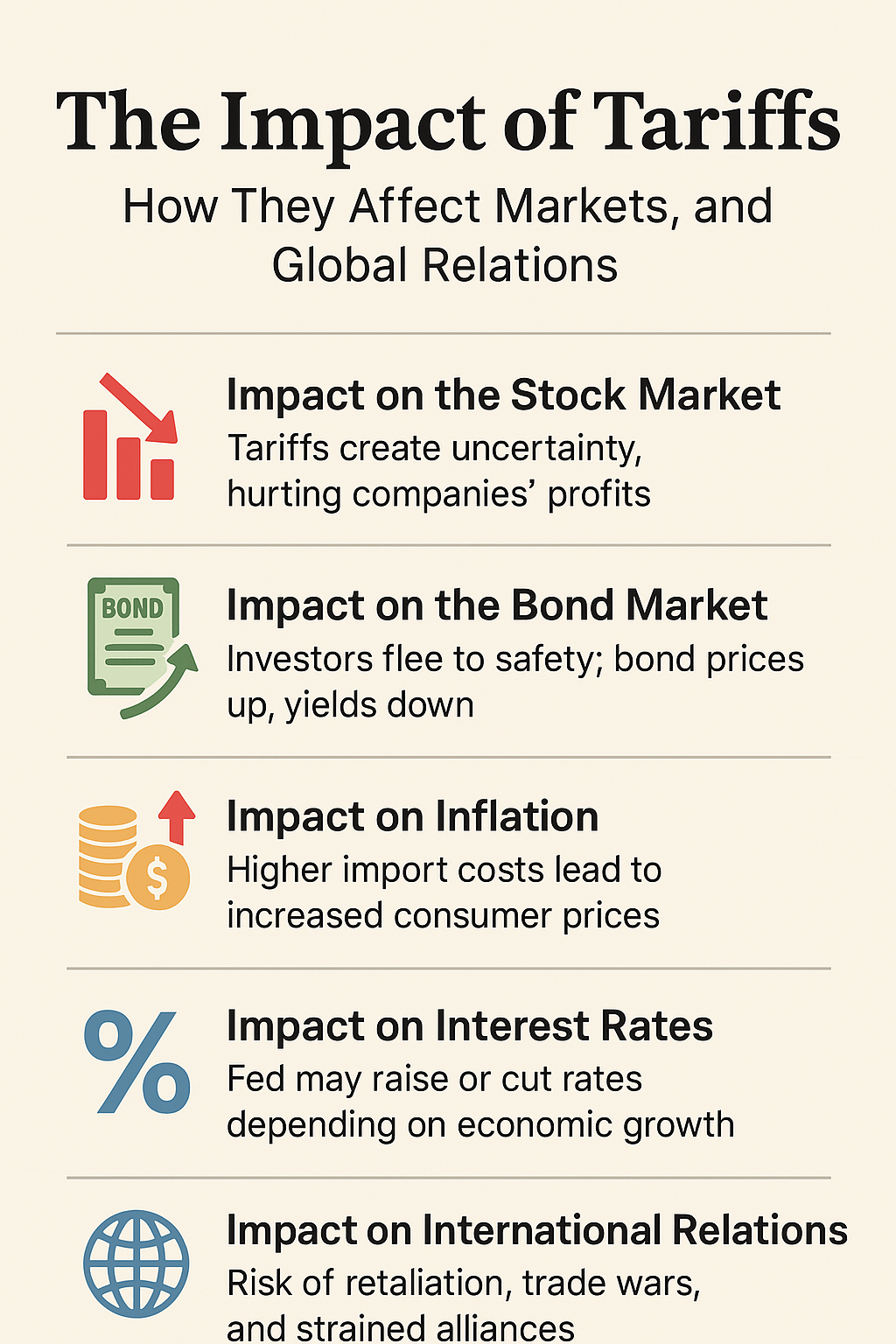Table of Contents
Toggle🇺🇸 The Impact of Tariffs: How They Affect Markets, Inflation, and Global Relations
When countries like the United States impose tariffs—extra taxes on imported goods—it sets off a chain reaction across the economy. From Wall Street to Washington to trading partners abroad, tariffs can shake markets, shift interest rates, and reshape relationships.
Let’s explore how tariffs affect key parts of the economy:
📉 1. Impact on the Stock Market
Tariffs often lead to uncertainty, and markets don’t like uncertainty.
Companies that rely on imported goods face higher costs, reducing their profits.
Export-driven businesses may suffer if other countries retaliate with their own tariffs.
Investor sentiment weakens, especially in sectors like manufacturing, retail, and agriculture.
🔍 Example: During the 2018–2019 U.S.–China trade war, the S&P 500 saw major swings as investors reacted to tariff announcements and trade talks.
Result: Stocks may drop or become more volatile when tariffs are introduced.
💵 2. Impact on the Bond Market
As stock markets become risky, many investors move their money into bonds—a “safer” place to park their cash.
This increases demand for government bonds (like U.S. Treasuries).
Higher demand pushes bond prices up and yields (interest rates) down.
📉 Why it matters: Lower bond yields can reduce borrowing costs for the government and influence mortgage, auto loan, and business loan rates.
Result: Tariffs can cause bond yields to fall as investors seek safety.
📈 3. Impact on Inflation
Tariffs raise the cost of imported goods, which can lead to higher prices for consumers.
Businesses often pass on the extra costs to customers.
This can increase the price of everyday items—food, electronics, appliances, etc.
🧾 Example: After tariffs on washing machines were imposed in 2018, prices for washers and dryers jumped nearly 20% in the U.S.
Result: Tariffs can fuel inflation by making goods more expensive.
💰 4. Impact on Interest Rates
Tariffs affect inflation and economic growth—which are both watched closely by the Federal Reserve (the Fed).
If tariffs cause inflation to rise, the Fed might consider raising interest rates.
But if tariffs slow down the economy, the Fed might cut rates to stimulate growth.
📊 Real-world twist: During the trade war, the Fed actually cut interest rates in 2019 because tariffs were seen as slowing the economy.
Result: Tariffs create pressure on the Fed to adjust rates—up or down—depending on how inflation and growth are affected.
🌍 5. Impact on International Relations
Tariffs can lead to trade wars and damaged diplomatic ties.
Countries affected by U.S. tariffs often respond with their own tariffs, escalating tensions.
Long-term alliances and trade partnerships may suffer.
⚠️ Example: U.S. farmers were hit hard when China retaliated with tariffs on soybeans and other crops, leading to billions in U.S. farm subsidies.
Result: Tariffs can strain relations with allies and rivals alike, disrupting global trade networks.




